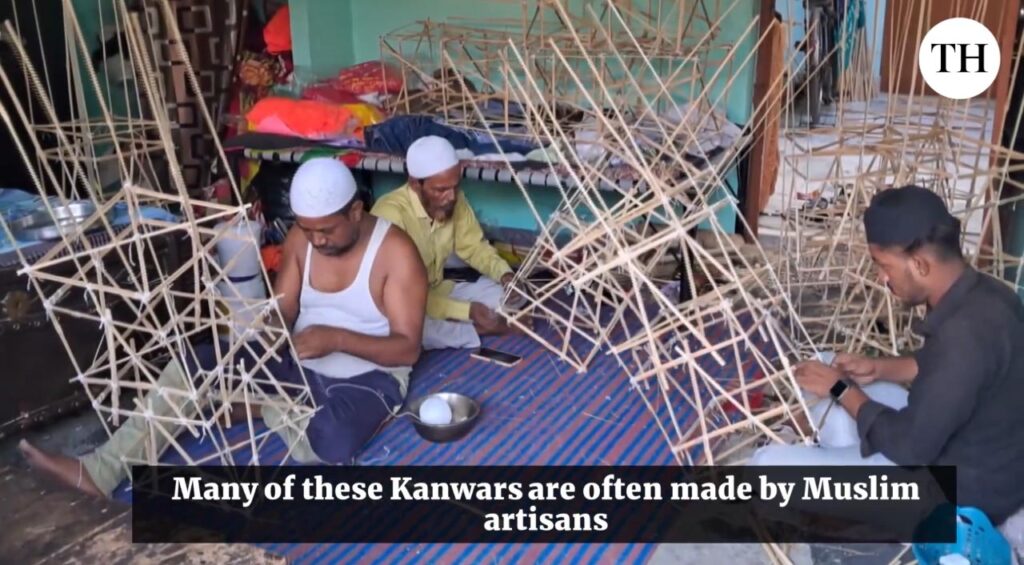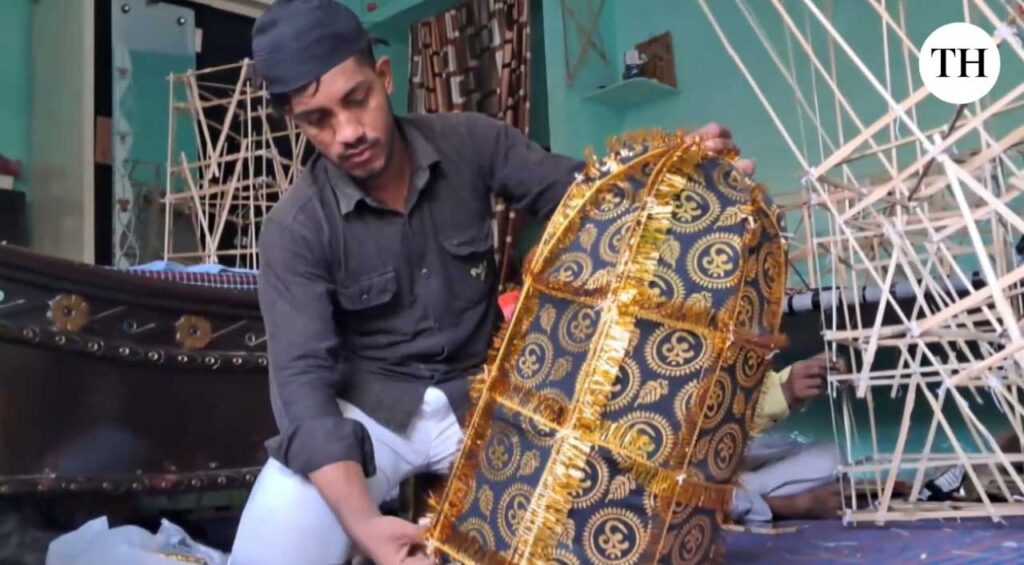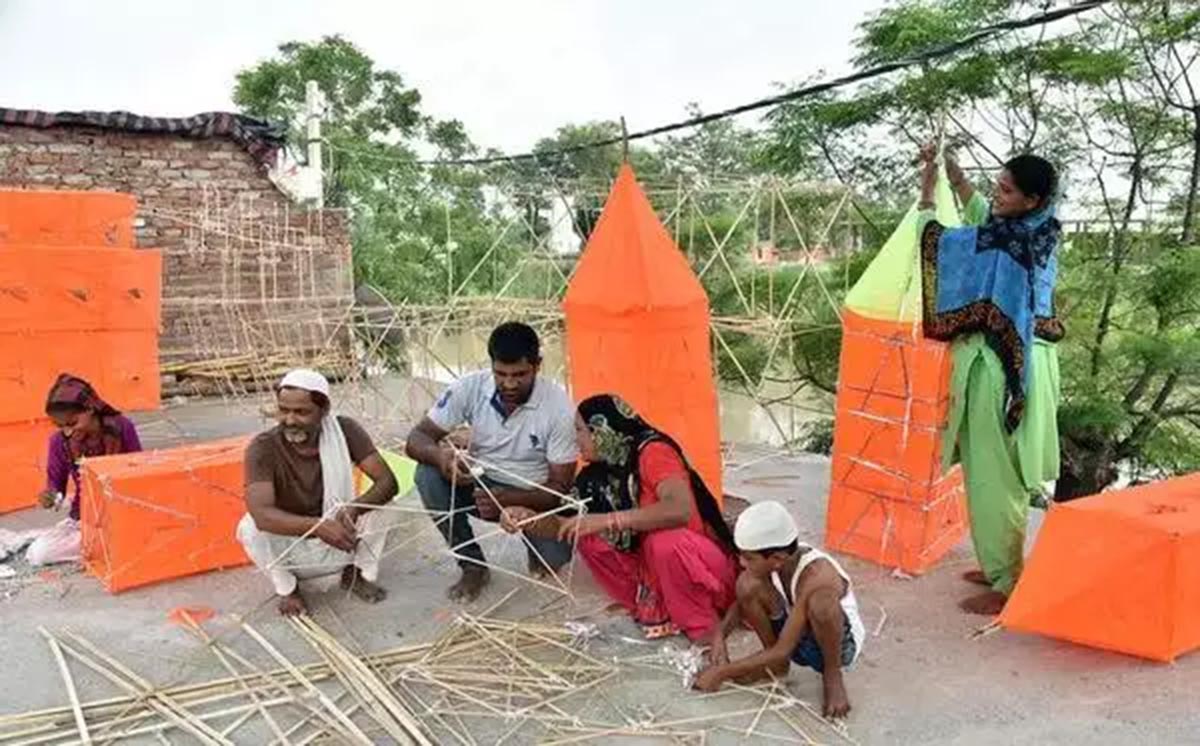Introduction
Amidst the religious polarisation over the nameplate controversy surrounding the Uttar Pradesh government diktat which asked food eatery owners to display their names on the Kanwar Yatra route, the history of Kanwar Yatra shows a different story of communal harmony between Hindus and Muslims. Meanwhile, the controversial order issued by the UP government was stayed by the apex court as it said nobody can be forced to display their names.
The Muslim artists have traditionally crafted Kanwars, which Kanvarias, devotees of Lord Shiva, carry on their head throughout their pilgrimage. The Kanwar Yatra originates from Kumbhnagari Haridwar and each year, during the month of Sawan, millions of Shiva devotees flock to Haridwar to collect the sacred waters of the Ganga. The Kanwars they carry are crafted with meticulous care by Muslim families in the Haridwar district, who dedicate many months to this labour of love.
The creation of Kanwars is a process which involves immersion of all family members from children to adults, with work carried out across day and night. This traditional craft of making kanwars involves utmost devotion, which the Muslims artists carry out for the Hindu Kanwariyas, without any consideration of religious identity or difference. Artisans say, they do this work more as an expression of display of unity among the communities rather than to make profit, reported the Hindu.

This noble initiative by Muslim families has garnered widespread appreciation from the Hindu community. Many Hindus believe that the Kanwars made by Muslim families are a testament to brotherhood and unity.
“I have been doing this for 15 years, and it brings me great joy. We also create Ravana effigies. It’s all about love and brotherhood; the entire Hindu community is like family to us,” said Abrar, a Kanwar artisan.
“We have been doing this since childhood. It brings me joy to be deeply involved in serving Bhole Baba. We craft all types of Kanwars and Dolis, feeling a great sense of fulfilment both while creating and sharing them. Our hearts connect and we are all one,” said Istkar, another Kanwar artisan.
“We’ve been doing this for 8-9 years. There’s no distinction between Hindus and Muslims here. It doesn’t bother me at all; we’re all brothers. We never question why we should work for Hindus. I’ve been doing this since childhood. In two or three days, all our Kanwads will be sold out,” said Imran, traditional Kanwar artist.

The Role of Communities
Communities often come together to ensure the pilgrimage goes smoothly. In many places, you’ll find arrangements made for resting, food, and even clean drinking water. Muslims frequently step up to help. They open their homes and even mosques for pilgrims, showing hospitality that goes beyond religion. This cooperative spirit exemplifies a shared humanity that transcends religious differences.
Conclusion: Celebrating Diversity
In the end, the Kanwar Yatra isn’t just a pilgrimage; it’s a celebration of diversity and unity. It showcases how we can all walk the same path, regardless of our beliefs. As we see Hindus and Muslims come together in friendship during this sacred journey, we can only hope that their example will inspire more people to choose kindness over division.
Related:
Secularism in action: Diyas lit at Nizamuddin dargah on Diwali | SabrangIndia

